Being well developed in the areas of knowledge and application means the coach knows what to do and how to do it, but that does not guarantee effectiveness. Many experts may still struggle to coach, especially if they lack the ability to create and maintain meaningful relationships with their athletes. Ultimately, great coaches create great relationships and positive training environments that allow their athletes to thrive. RELATIONSHIP BUILDING is a key area of coaching and can be one of the more elusive skills a coach must develop; however, underestimating this skill’s importance will stifle a coach’s success. Relationship skills enable the coach to manage people and handle the problems that can occur in a dynamic setting like a CrossFit gym.
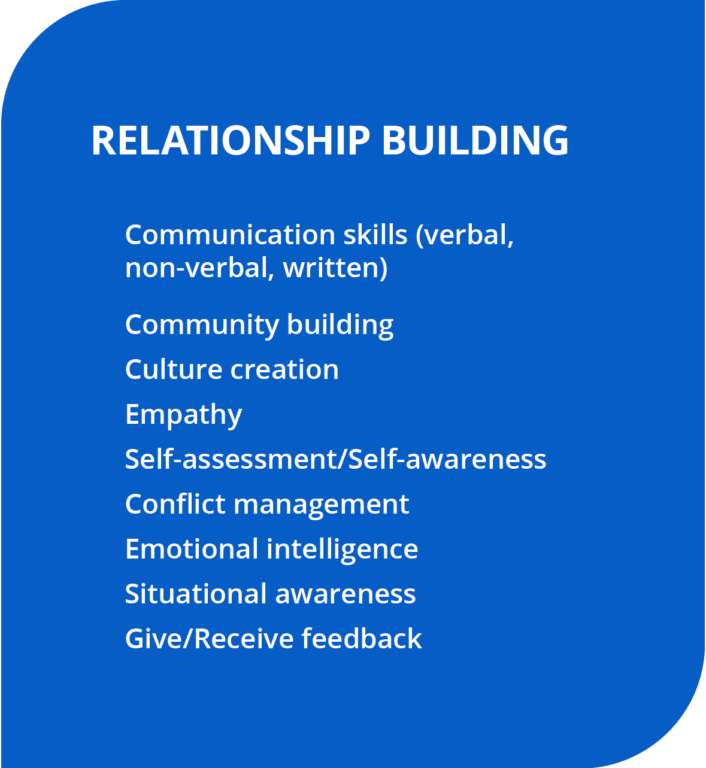 Coaches who are great at developing relationships tend to have highly developed emotional intelligence and self-awareness. Their communication skills are excellent, and they operate with a high degree of empathy and connection. These coaches are typically surrounded by strong communities and have gyms with positive culture, and this is no accident. Both have been purposely created and nurtured by the coach.
Coaches who are great at developing relationships tend to have highly developed emotional intelligence and self-awareness. Their communication skills are excellent, and they operate with a high degree of empathy and connection. These coaches are typically surrounded by strong communities and have gyms with positive culture, and this is no accident. Both have been purposely created and nurtured by the coach.
How do you develop this skill? Many resources are available, including courses, books, and programs, but the starting point is to be aware that relationship building is an active process that requires the coach to look for opportunities to connect with athletes. Paying attention to how you interact with people and noticing how others react to you is a key part of the developmental process. Relationship building requires you to see the athlete as a whole person and respect the role training plays in the broader canvas of their life.
Identify a great coach and watch carefully as they interact with their athletes. Imagine nothing is an accident and try to imitate or incorporate what they do into your toolkit. Copying great role models is an effective way to develop relationship skills, especially at the beginning.
In the coaching journey, this is perhaps the area that is most self-directed, and it requires the coach to take an honest look in the mirror and to seek feedback from other coaches or mentors wherever possible. Do people enjoy being around you? Do you seek to understand what your athletes are thinking and feeling? Do you consider the needs of others? Do you understand the context for other people’s behavior? Why do some athletes respond to your coaching cues but others ignore you? Do you understand what is happening in your athletes’ lives outside the gym? This may be an area where you need to seek out a trusted adviser and get honest feedback on where your relationship strengths and weaknesses lie. This can be ego-challenging work, but it is important and pays dividends.
A great coach uses relationship skills very deliberately to connect with people in a meaningful and enduring way. The best coaches are able to read subtle differences in personality, motivation, and emotions to fine-tune the training experience and customize it to the individual.
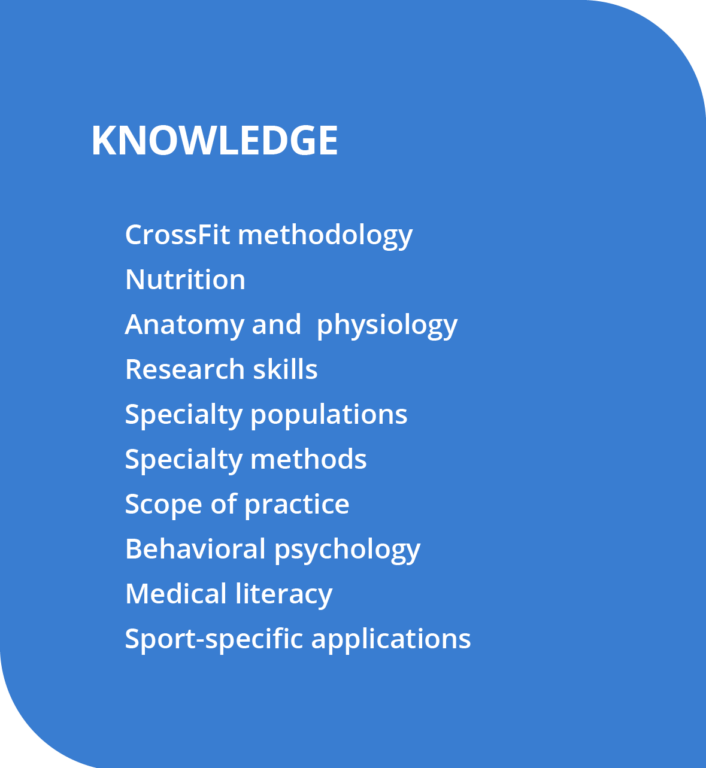
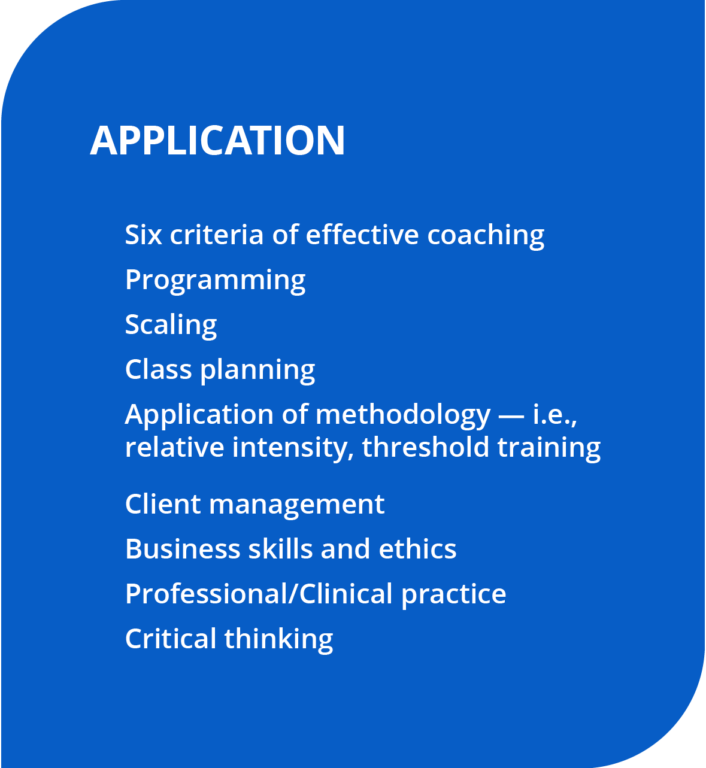 The coach who is well balanced across teaching, seeing, correcting, group management, presence, attitude, and demonstration has a basic but effective toolkit that will allow them to apply their knowledge. This should be considered the
The coach who is well balanced across teaching, seeing, correcting, group management, presence, attitude, and demonstration has a basic but effective toolkit that will allow them to apply their knowledge. This should be considered the  Coaches who are great at developing relationships tend to have highly developed emotional intelligence and self-awareness. Their communication skills are excellent, and they operate with a high degree of empathy and connection. These coaches are typically surrounded by strong communities and have gyms with positive culture, and this is no accident. Both have been purposely created and nurtured by the coach.
Coaches who are great at developing relationships tend to have highly developed emotional intelligence and self-awareness. Their communication skills are excellent, and they operate with a high degree of empathy and connection. These coaches are typically surrounded by strong communities and have gyms with positive culture, and this is no accident. Both have been purposely created and nurtured by the coach.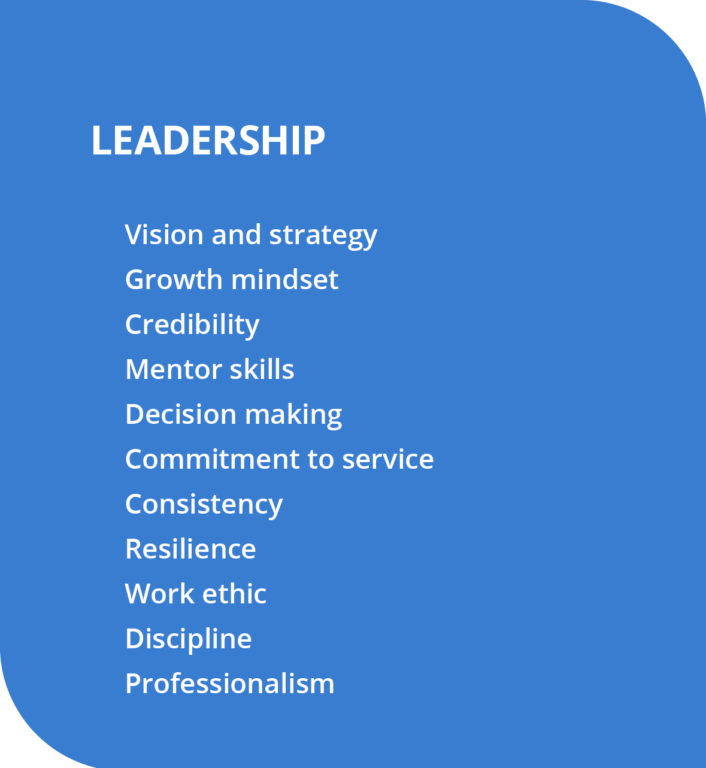 Developing leadership skills should be a process that runs in parallel with developing the other areas of coaching. As is the case with relationship skills, coaches can tap into a large body of knowledge that includes courses and books, but ideally, this area should be developed through mentoring and on-the-job training.
Developing leadership skills should be a process that runs in parallel with developing the other areas of coaching. As is the case with relationship skills, coaches can tap into a large body of knowledge that includes courses and books, but ideally, this area should be developed through mentoring and on-the-job training.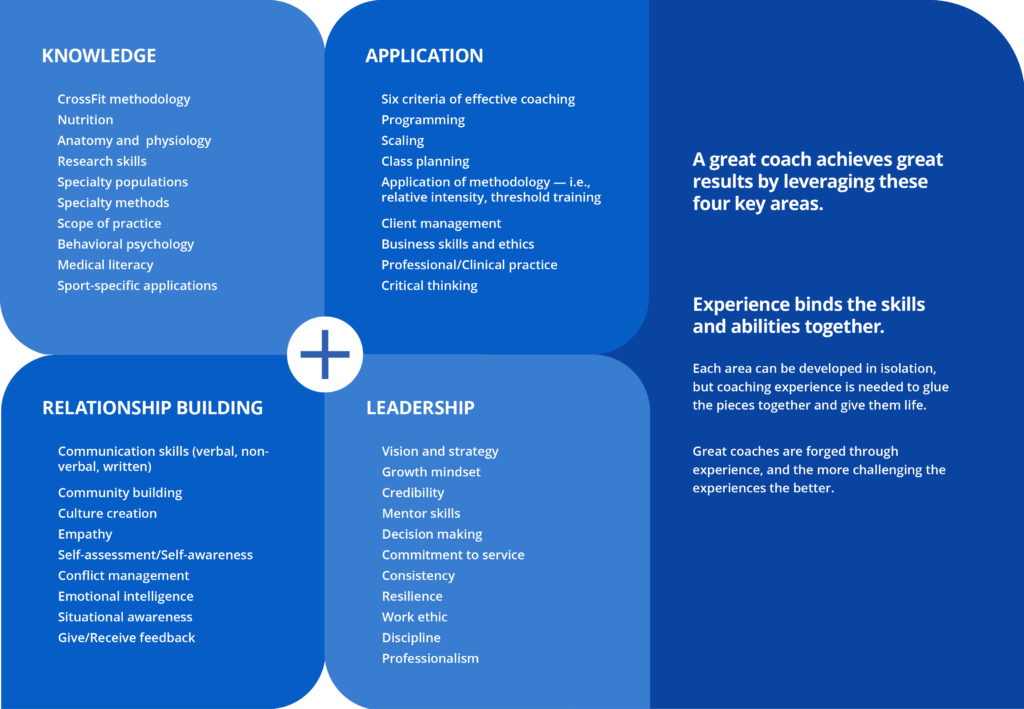
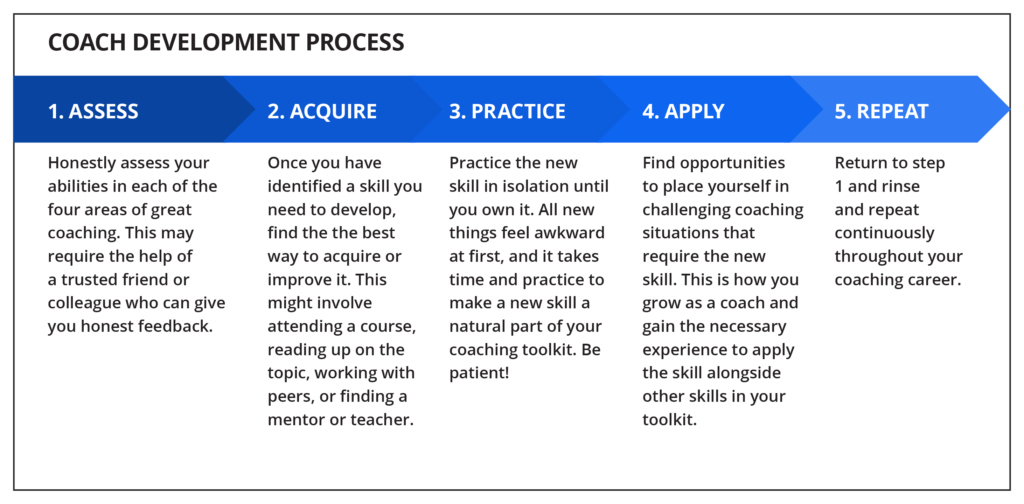
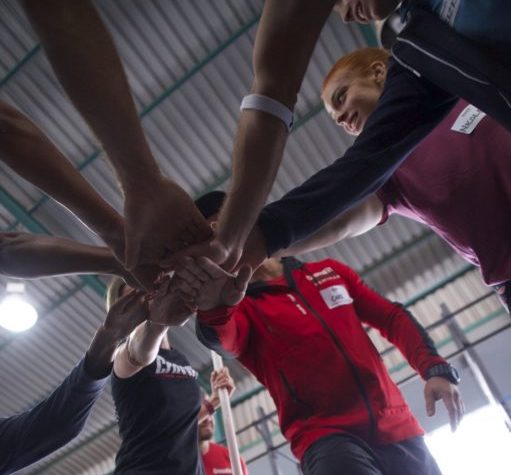 The process takes work and commitment, and it is certainly no easy road. But it works and is the secret behind masterful coaching.
The process takes work and commitment, and it is certainly no easy road. But it works and is the secret behind masterful coaching.